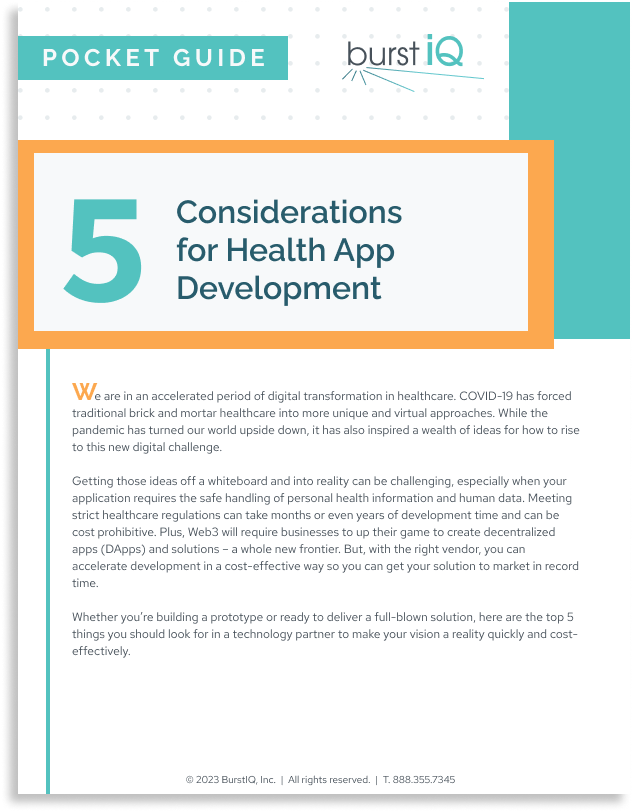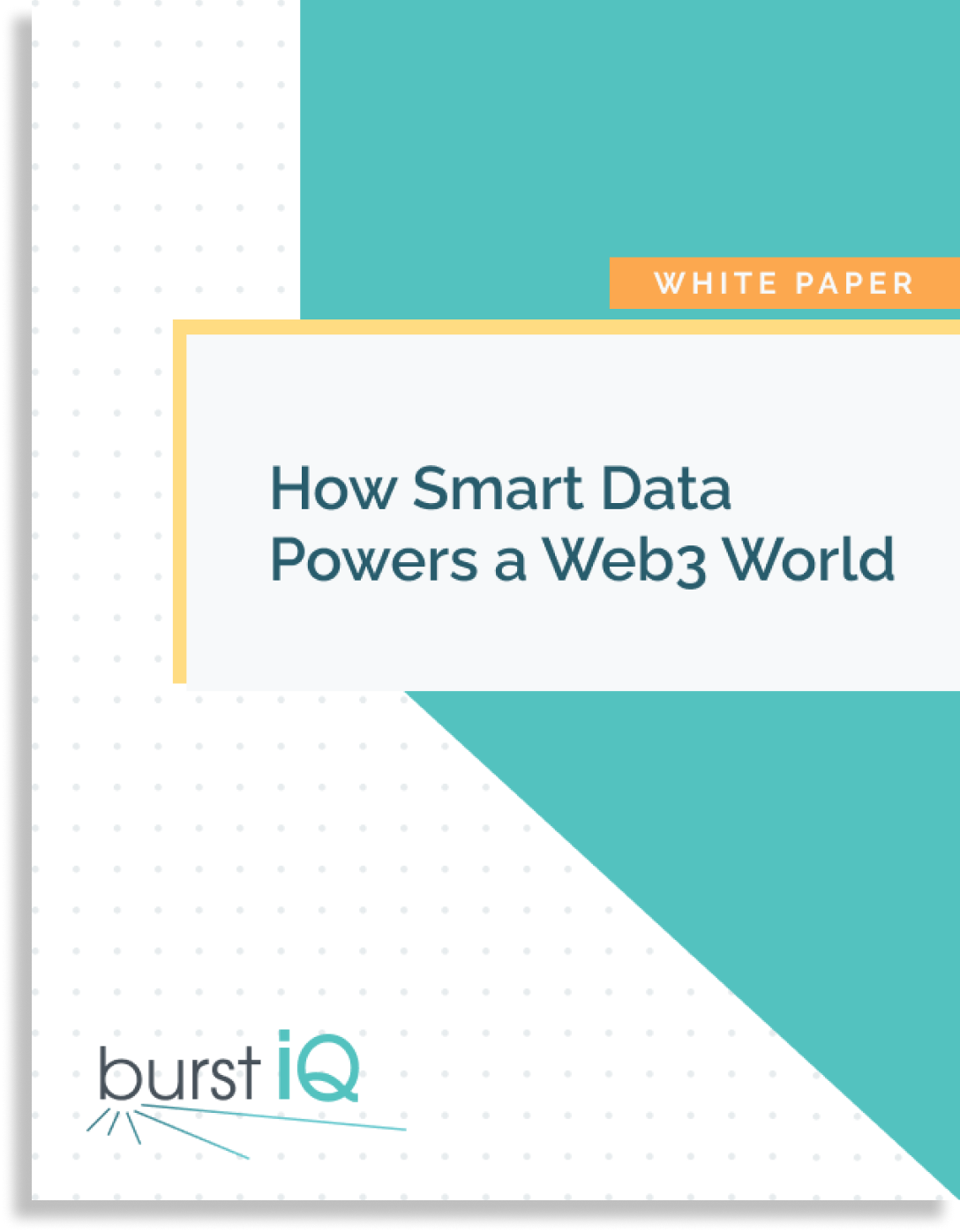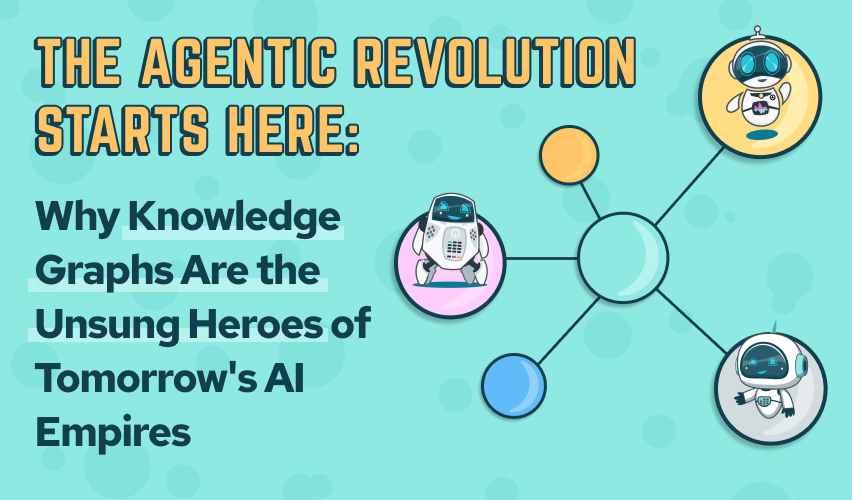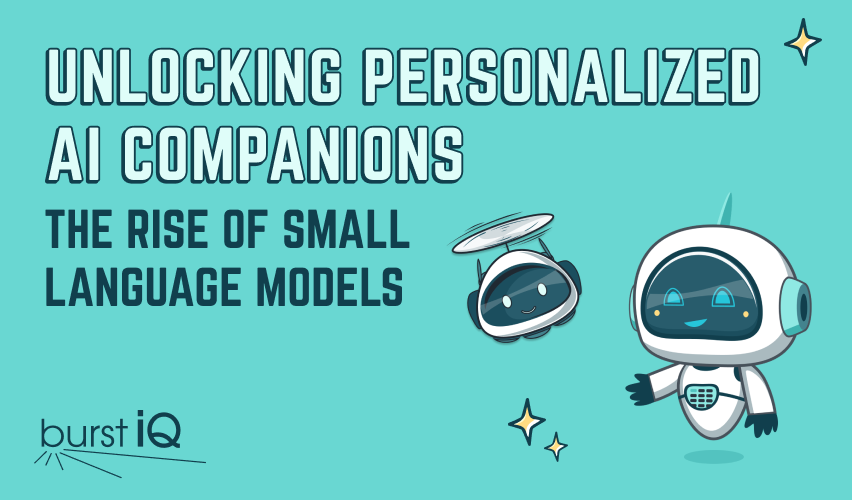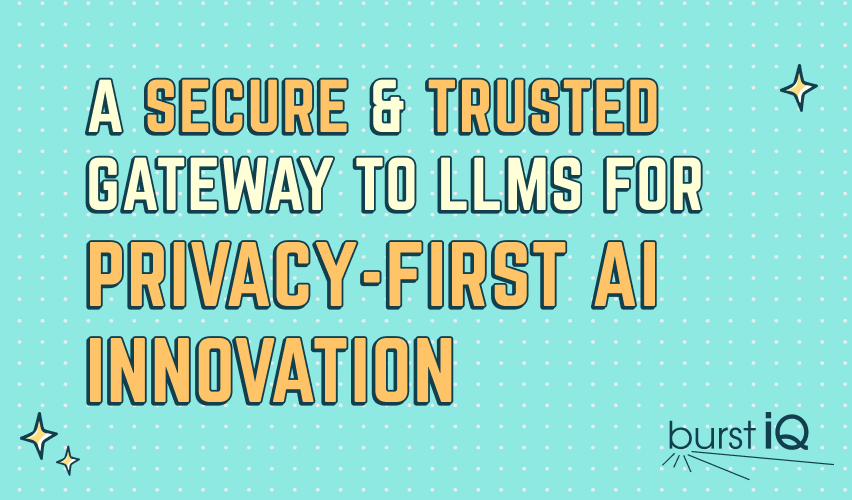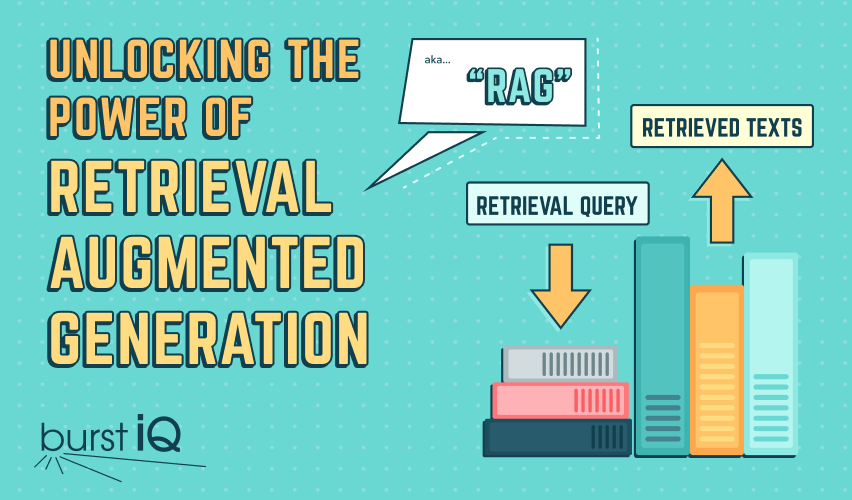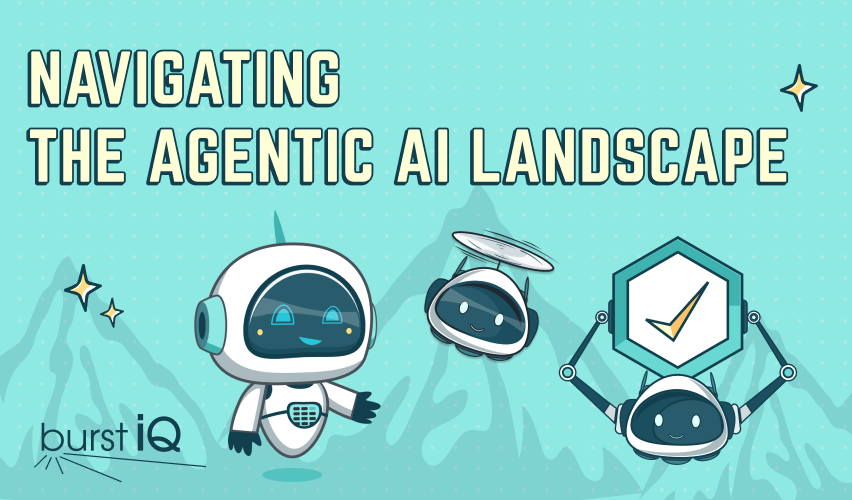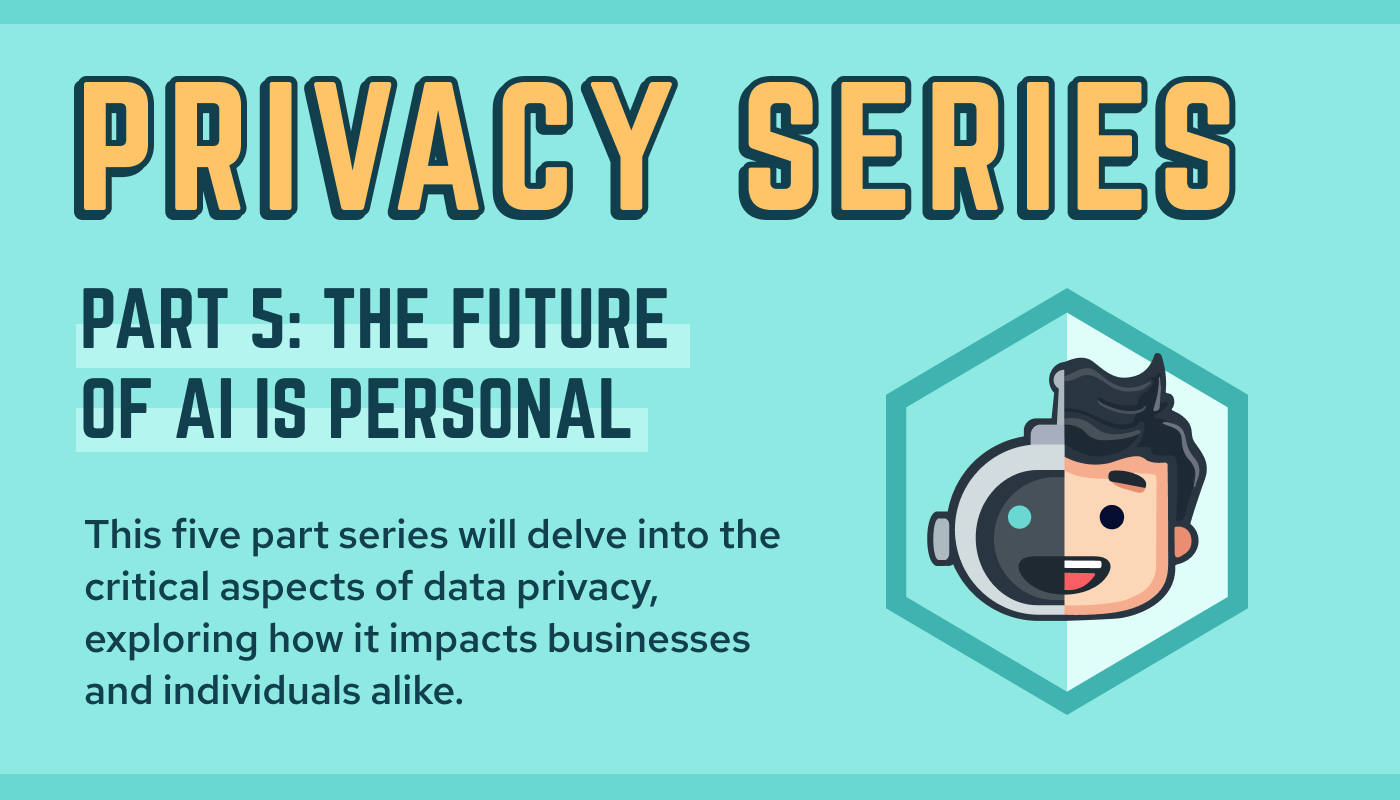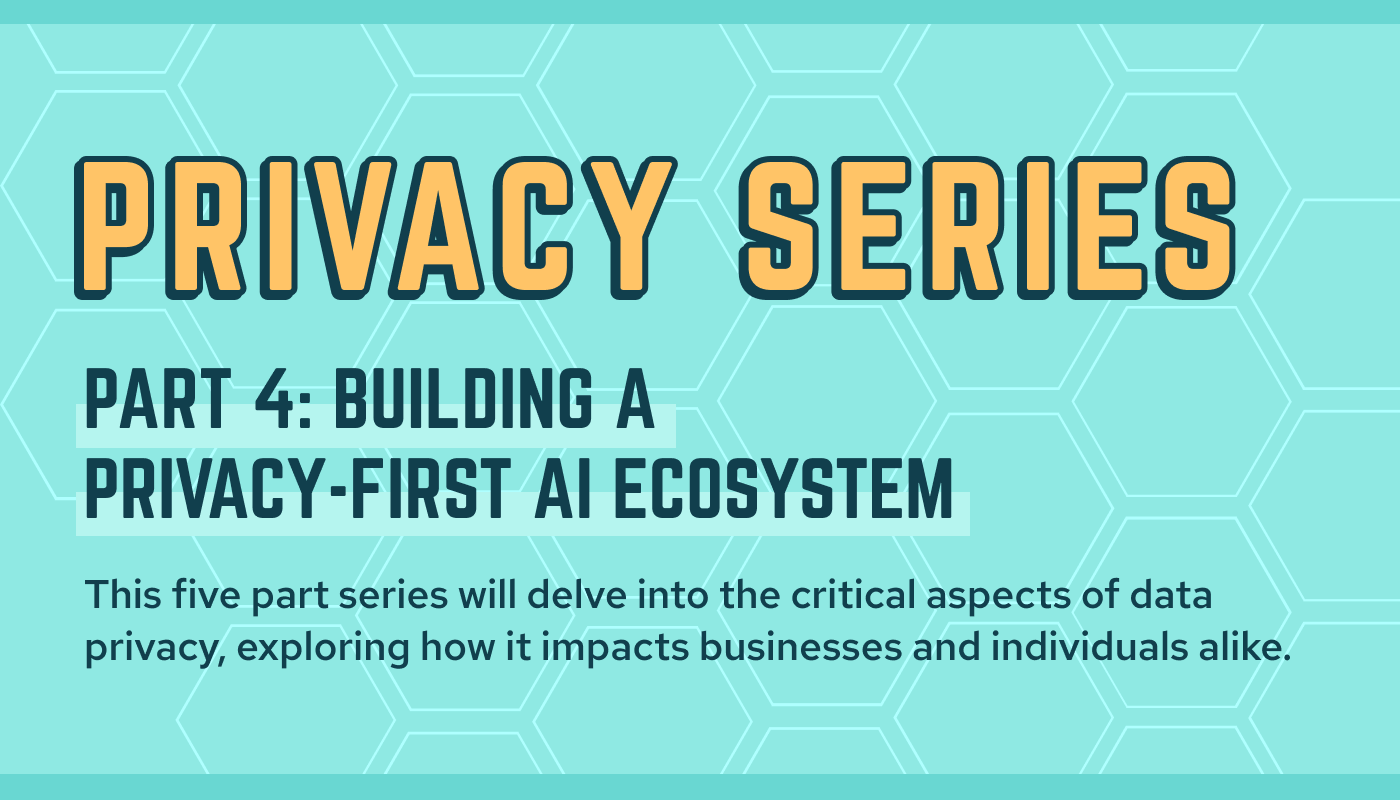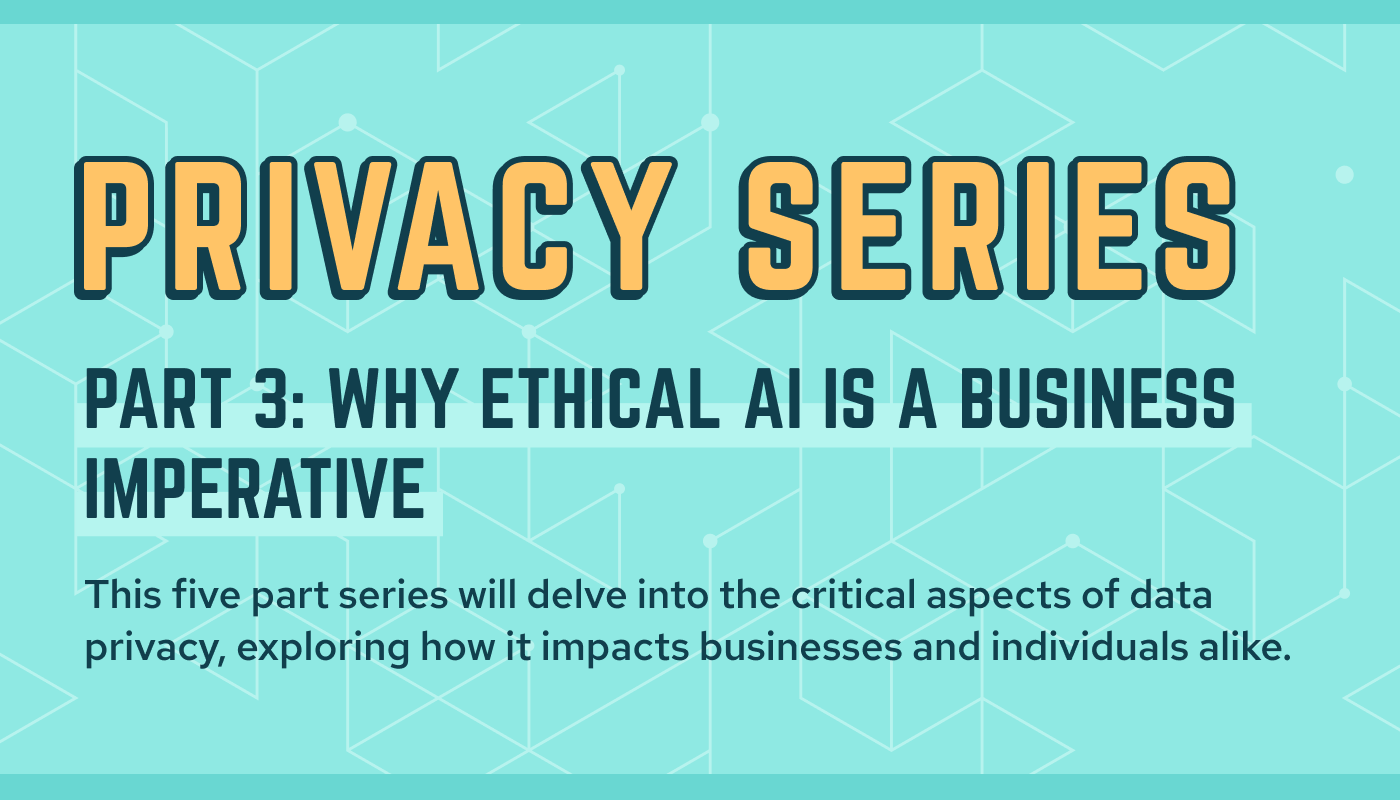Knowledge Burst Blog Series — Earn Trust: Ethical Digital Transformation
By Frank Ricotta, CEO & Founder, BurstIQ
Build trust and improve business outcomes through data sovereignty, data dignity, and collaborative intelligence to create meaningful connections in a digital world.

Data is your gateway to trust
We live in a world of data abundance, not data scarcity. By 2025, experts are projecting that there will be over 175 zettabytes of data in the global datasphere. Without getting too deep in the weeds, I think it helps to visualize this enormous amount of data. So think of it this way, we can store a quadrillion books on 1 zettabyte — that’s one thousand trillion! As a point of reference, depending on how one calculates the amount of data that currently exists on the internet, estimates say around 5-7 zettabytes. To say data is growing exponentially is an understatement. We are quite literally knee-deep in a data explosion.
Here is the mind-blowing part. Behind every byte of data is a human who generated it. Data at its core is an expression of human experience. Sure, machines and now emergent artificial intelligence (AI) can create data. But to me, that is a circular argument – at the end of the day, machines and AI are created by humans. So, let’s shelve this particular argument for another day and follow along with the premise, even if you only consider that a portion of the total amount of data connects back to a human.
Any way you slice it, we have a ton of data just waiting to be made useful. So, what do we do with it all? How do we make it work for our businesses beyond fancy charts and graphs? How do we use it to forge trusted relationships with the humans who generate it? In this blog series, we will discuss how we can earn trust when by embracing data abundance and the opportunities we have if we do so ethically:
- Unify data the right way
- Manage and use data to promote data dignity
- Accelerate trust with digital technology
- Apply artificial intelligence (AI) and machine learning to deliver more value through hyper-personalized digital experiences
A disruption to the current business model
Up until this point, most organizations have operated on the premise that we live in a data scarcity world. As such, businesses recognized the opportunity (think money) and designed operating models focused on owning, controlling, and monetizing data. Nowhere is this more evident than in the world of social media where your data is used to influence and monetize your behavior. Not to mention the long list of companies that have created businesses around buying and selling your data — many of which have staggering valuations.
Business leaders who have built their enterprises on owning and controlling data have often described data as the new oil: using it as an analogy for the fuel and currency of the gig economy. Yet, the way many organizations collect, hoard, and sell data is no better than the robber barons of old. They are doing so without the person’s consent or their understanding of how it’s used and the value created. They bury consent within general terms and license agreements, which most people don’t take the time to read.
It is true, that many of these companies dominate their respective markets in the current Web 2 world. Amazingly, we find ourselves on the precipice of these business models being totally disrupted with the emergence of Web3, which is often referred to as the semantic web. Web3 provides the framework to enable humans and machines to communicate at a scale we have yet to imagine. In my view, this disruption brings a healthy balance back to a new digital world. Based on trust. Based on data sovereignty and data dignity. Based on decentralization and shared incentives. Based on collaborative intelligence between people and AI. This new digital world creates new economic and digital experience models that we have only been able to imagine.

It’s a Matter of Trust
Trust is arguably the most important consideration when it comes to being successful in business and digital transformation. To be successful, organizations need to earn and keep their customers’ trust. According to Forrester’s Trust Imperative “Trust is the single most valuable competitive asset for companies and is crucial for the success of transformational technologies.”
Data plays a big role in helping your business build trusted relationships with the people you serve. Whether it’s data usage, ownership, or sharing, your business has a big responsibility to protect your customers’ data and privacy.
Your responsibility to use data in an ethical manner is part and parcel of doing business in a digital world. Organizations that misuse data or fail to protect it will quickly find themselves out of business. Compound this with the fact that recent market surveys indicate that the vast majority of people are losing trust in centralized organizations, be it big tech or big government, with increasing confidence in solutions based on blockchain, such as Bitcoin, far outpacing these organizations. The same is true for data.
The converse is also true. Organizations must be able to trust the people and data they are interacting with. Rather than an intermediary brokering this trust, trust itself will be embedded in the data and verified by the network.
Law and Order
Data sovereignty has been a been topic of conversation over the past several years. Traditionally defined, data sovereignty means data is subject to the laws and governance in the nation that it is collected. We see this throughout the world as we deploy our LifeGraph health exchanges. Laws and legal structures serve a valuable purpose in protecting people’s data rights, but technology has fast outpaced the ability of legislators to keep up.
There are no geo-political boundaries in metaverse land. Enter self-sovereignty, or self-governance, where each individual has ownership rights and jurisdiction over their own data. In a decentralized system, regulatory bodies must still play a role in passing appropriate laws to prevent misuse and issue strong penalties for data piracy and malicious activity, while not infringing on individual rights and their ability to share their data with whom they wish and control how it can be used.
Data for the People, by the People
We like to call it data dignity. Data dignity can be defined as a person’s right to the ethical use of their digital data, driven and governed by their consent. As we drive into an experience economy in all aspects of our lives, data is more than just data. The lines between the digital versions, or digital twins, of humans and the living, breathing human are blurred. Data dignity and human rights must be two sides of the same coin. Data can no longer be considered information about someone, but going forward it must be considered an extension of that person.
Why It Matters
Without data, there would be no digital technology, no media, no social platforms, no big tech, no Google, no Amazon, no Facebook, and definitely no metaverse. The gig economy would not exist without data. Data by itself is useless without the people behind it.
Digital transformation at its core is nothing more than data turned into the right information at the right time. It’s about using digital technologies to create better customer experiences and to ultimately make the world a better place.
A friend of mine described COVID in the data context as the catalyst of verified individual data. While I’m not trying to diminish the human tragedy of the pandemic, it did transform our world in many ways. Specifically, I think it is fair to say that we have experienced a 7-10 year digital transformation acceleration across our health, work, and life digital experiences. Some examples include:
- Self testing – we quickly transitioned from using at-home tests to trace our genealogy to incorporating at-home tests to assess the current state of our health. The pace of innovation with what these tests can measure continues to rapidly accelerate.
- Healthcare entered the demand economy – We expect to have the option to interact with a care provider digitally and in a time and place that is convenient for us. Of course, virtual visits can not fully replace care interactions. But we are going to see them become more effective as they are increasingly coupled with edge diagnostics and testing, next-generation IoT devices, and AI.
- Our work experiences radically changed – Individuals realized they can restart careers and pursue more meaningful opportunities that balance work, home, and intrinsic needs.
- Employers embraced the gig economy workforce – Virtual presence is the new normal. Location became a personal choice vs a requirement. The employer-employee relationship has become more balanced as employers adapt to changing workforces, benefit needs, and personal preferences.
- Smart Data moves to the edge – Digital identities combined with verifiable information moved beyond the conceptual stage to early stage adoption across a broad cross section of our personal and professional lives.
- Transparent AI – We don’t think twice about asking our favorite voice bot for directions, a new receipt, turn on our lights, and more. We are seeing a big push for artificial human avatars as the front line for customer service, learning and education, and even health diagnosis.
To adapt to all these changes, you must adopt a digital-first strategy. And in order to be digital-first, you must embrace a data-first strategy if you have any hope of being successful.
Ride the wave or get crushed
The next wave of successful companies will realize that they must connect with both the data and the person behind it in a way that is mutually beneficial, where individual privacy and ownership rights are respected, incentives are aligned, and trust is inherent.
For all of the reasons outlined above and more, we have followed a core set of values in the development of our LifeGraph product and to ensure that we are working with human data in the most ethical way possible. We strongly believe that these core values align with this movement and can serve as a guidepost for life in a Web 3.0 world.
Connection: Data is the digital expression of humans. We facilitate connections to human data so our customers can connect with the person behind it.
Trust: It’s our collective responsibility to build trusted relationships, to use human data ethically, and return value to the humans who generate it.
Engagement: Human data should be used to engage with humans; it should enable meaningful, intelligent, and personalized experiences in both the real world and the virtual world.
Inspiration: By creating trusted and human-centered ecosystems, we can foster communities where people connect, disrupt conventions, create markets, and foster compassion.
At BurstIQ, we live these values every day because we envision a world where digital innovations forge trust and demonstrate deep human understanding through purposeful work, health, and life experiences. Experiences that make the world a healthier place.
These are exciting times. We look forward to navigating this disruption and digital age together. This blog serves as the first of many. In this series, we will explore the technology behind this transformation (Web 3, semantic web, blockchain, and trusted data), data unification, human-centric digital experiences, the role of AI and collaborative intelligence, and how all this impacts us.
If you would like to learn more about what we are doing at BurstIQ and our LifeGraph technology, feel free to reach out to me directly.
Finally, the following are a couple of resources that you may find helpful.
About BurstIQ
BurstIQ fuels trust-first digital strategies with human data. LifeGraphs® take the complexity out of managing sensitive human data, freeing organizations to build trust through hyper-personalized health, work, and life digital experiences. In an era of data abundance, LifeGraphs promote trust between organizations and the individuals providing data through blockchain-powered governance and consent. The LifeGraph Network provides a single source of truth and an intelligent ecosystem, helping businesses gain a deep understanding of the people they serve. Armed with granular insights, they can deliver more value in digital experiences and make an increasingly digital world more human.
